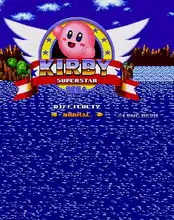Remember firing up your old console or PC, ready to lose hours in a pixelated world? What if there were hidden paths, new stories, or even entirely different versions of those beloved games waiting to be discovered? That's where the fascinating world of hack games comes in, adding an exciting layer to our shared retro gaming nostalgia.
But what exactly do we mean by "hack games" when talking about the classics? It's not about cheating (usually!). It's about ingenuity, community passion, and finding new ways to experience old favorites. It covers a few different, but related, ideas.
What Exactly Are "Hack Games" in the Retro World?
When most retro gamers talk about "hack games," they're often referring to fan-created modifications of original game ROMs. Think of it like fan fiction, but for video games.
- ROM Hacks: These are modifications to the game's code that can change anything from graphics and sound to level design, character abilities, or even the entire story. Some fix bugs, others add new challenges, and some are just plain wacky transformations.
- Fan Translations: A massive part of the "hack" scene involves translating games that were only released in one region (like Japan) into other languages. This has unlocked countless incredible titles for players worldwide, finally letting us understand those cryptic menus or epic JRPG plots.
- Restoration Hacks: Sometimes, content was cut from a game before release. Restoration hacks aim to put that content back in, offering a more complete version of the developers' original vision.
These fan-made creations breathe new life into games we thought we knew inside and out. Playing a familiar platformer with completely new levels, or finally understanding the story of a long-lost RPG, is a unique thrill.
Beyond ROMs: Hacking Your Way to Play
"Hack games" can also refer to clever ways to access or modify the experience of playing retro games. This isn't about altering the game itself, but the system or method you use to play it.
- Emulation Tweaks: Getting emulators like DOSBox, MAME, or console-specific ones running perfectly often involves tweaking settings, finding the right BIOS files (legally, of course!), or configuring controllers. Mastering emulation feels like a mini-hack in itself – getting modern hardware to mimic ancient systems.
- Hardware Modifications: Remember those all-in-one retro game sticks? As some folks have discovered, even these can be "hacked" or modified. This might involve replacing the default, often messy, game library with a curated selection, or even upgrading the underlying software. It's about taking off-the-shelf tech and bending it to your will for a better retro experience.
- Finding the Games: Sometimes, the "hack" is simply knowing where to find abandonware titles legally or track down physical copies. Sites like GOG.com offer classic PC titles DRM-free, often pre-configured to run on modern systems. Archive.org has a vast library of playable-in-browser classics and downloadable abandonware. Knowing these resources is a kind of knowledge "hack" for accessing games.
This side of the scene is about making retro gaming accessible and enjoyable on modern setups, overcoming compatibility issues and clunky interfaces through technical know-how.
The Community and Creativity
At the heart of most retro game hacks is a passionate community. People dedicate countless hours to reverse-engineering old games, building tools, translating text, and creating entirely new content. Forums, dedicated websites, and communities on platforms like Reddit are hubs for sharing these creations, discussing techniques, and preserving gaming history. It's a collaborative effort fueled purely by love for these old worlds.
Is it Legal/Ethical? (A Quick Note)
It's important to touch on this. While fan translations and ROM hacks are created out of love, their distribution often exists in a legal grey area, as they modify copyrighted material. Generally, the community consensus leans towards it being more ethically sound if you own a physical copy of the original game. Finding and using these requires navigating that landscape responsibly. Resources like GOG and Archive.org offer fully legal ways to acquire and play many classic titles.
Unlocking New Adventures
Exploring the world of hack games opens up a treasure trove of new experiences within the familiar landscapes of our youth. Whether you're diving into a fan-translated JRPG you never got to play, trying a challenging ROM hack of your favorite platformer, or tweaking an emulator to perfection, it's all part of the vibrant, ever-evolving retro gaming scene. It’s about preserving history, fostering creativity, and most importantly, having more ways to enjoy the games we love.
FAQ
Q: Are ROM hacks safe to download? A: You should be cautious. Always download from reputable community sites and use antivirus software. Be aware of the legal grey areas involved.
Q: How do I play ROM hacks or fan translations? A: You typically need the original game's ROM file and the patch file for the hack/translation. You then use a patching tool (specific to the console/game) to apply the patch to the ROM. You play the resulting patched ROM using an emulator.
Q: Where can I find legal classic games? A: GOG.com is excellent for classic PC titles. Archive.org has a large collection of abandonware and playable-in-browser games. Sometimes, developers re-release classics on modern platforms (Steam, console stores).
Q: Is modifying a retro game stick legal? A: Modifying hardware you own for personal use is generally fine. The legality issue often arises from the source of the games preloaded on such devices or added later, which may be copyrighted material.
Q: What are some examples of famous ROM hacks? A: Some popular examples include Super Mario World hacks like Kaizo Mario World (known for extreme difficulty), or fan-made sequels/remixes for various consoles.





